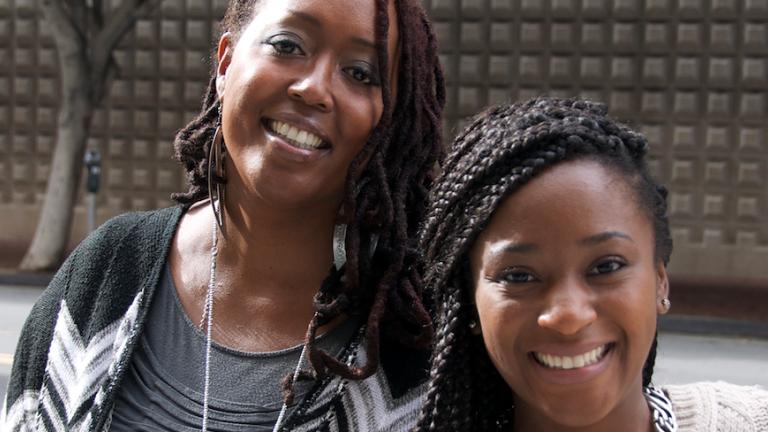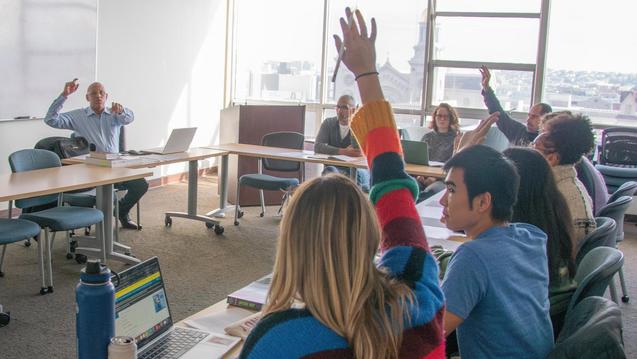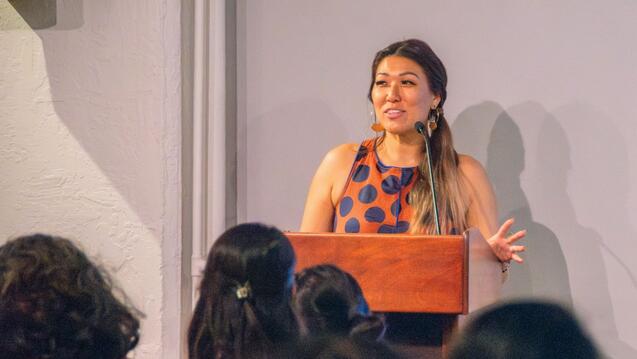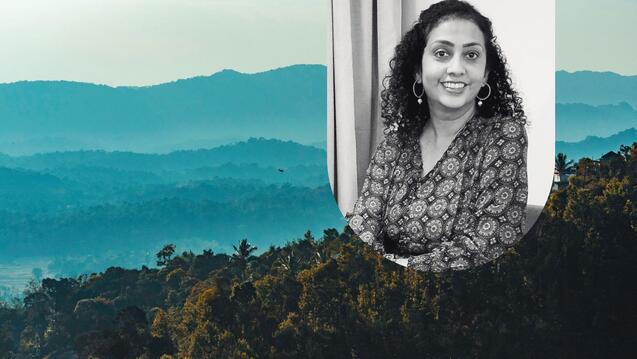Your roadmap to becoming a licensed clinical psychologist through CIIS' integral, holistic approach to doctoral training and professional practice.

Expanding the Frame: Liberatory Practices in Psychology
A visual, nonlinear timeline of nine critical psychological frameworks at CIIS
Expanding the Frame: Liberatory Practices in Psychology, on display on CIIS third floor, is a visual, nonlinear timeline of nine critical psychological frameworks.
The intentions of the exhibit are twofold: The first is to catalyze discussions between and among CIIS students, faculty, and staff about cutting-edge practices within contemporary psychology that support and honor the complex experiences of our multiple communities; the second, no less important, is to illuminate the wealth of knowledge that CIIS faculty, staff, and community members have within psychology.
Each aim reflects the highest aspirations of CIIS: to value our diversity and challenge ourselves to reach for and define best practices in the field.
The following CIIS community members made invaluable contributions of knowledge and information resources:
- African-Centered Psychology: Adeeba Deterville, Sankofa Cultural Institute Co-founder (PhD student, TSD); and Ebede Ndi, East-West Psychology
- Ecopsychology: Fernando Castrillón, Community Mental Health
- Feminist Psychology: Alka Arora, Women's Spirituality
- Human Sexuality and Gender in Psychology: Sonya Arreola, Human Sexuality; and Steven Tierney, Community Mental Health
- Indigenous Wellness in Psychology: Sandra Pacheco, Undergraduate Studies
- Liberation Psychology: Danielle Drake-Burnette, Expressive Arts Therapy
- Mindfulness: Steven Tierney, Community Mental Health
- Neurodiversity: Nick Walker, Undergraduate Studies
- NTU Psychotherapy: Denise Boston, Expressive Arts Therapy
Curator and Expressive Arts Therapy student Tayyibah Hasan sat down with Danielle Drake-Burnette, Expressive Arts faculty member, to discuss the exhibit.
Danielle: What inspired you to curate this particular exhibit?
Tayyibah: The Arts at CIIS and MHSA Project* wanted to collaborate on an idea for an exhibit in the third-floor hallway as a timeline. We wanted to make visible the work of the experts in our midst, and gather our collective wisdom and resources into a cohesive timeline that could inspire others to expand the frame. I started to think about all the inspiring fields of psychology that I had experienced at CIIS, in class or in workshops, and began pulling out different names and titles that stuck out to me: liberation psychology, feminist psychology, neurodiversity. I built on that list of psychologies that were different from the norm in the field.
Danielle: Why is the focus on "alternative" psychologies important to you?
Tayyibah: During my first year at CIIS, I had a lot of conversations with other students about what I wanted to learn here and why I came to CIIS in the first place. I wanted to learn something that was liberating, that I felt I could relate to, particularly around being a student of color. I wanted to learn more psychologies that were for and about my community-for myself and my growth as a therapist. I wanted to make sure that I was going to be a competent therapist going out into the field. A group of those students and I talked about ways that we could bring more of those ideas into the classroom and integrate them more fully into the curriculums we were learning, because I felt that some of the things we were learning did not honor or address the needs of our communities.
Danielle: So you were looking toward your futures and trying to figure out a way to craft your careers as developing mental health professionals in a way that was going to be inclusive of different and diverse communities that you would potentially be looking to work with.
Tayyibah: Yes. In academia and in practice, I believe that cultural humility and awareness are key to becoming a competent therapist.
Danielle: From your own personal perspective, how have your experiences shaped your thoughts about why this exhibit is so important?
Tayyibah: For me as a student coming into CIIS, this exhibit reassures and validates my own culture and experience. As an African American student, I was drawn to Denise Boston's NTU workshop last year-a workshop that was developed for and catered to the African American community. I hoped that I could do the same for new students, whether or not they have a disability, or are a person of color-anybody really-because the timeline speaks to everyone in some way or another.
Danielle: As faculty members, we're concerned about educating students in order to make sure that they are prepared to work in a variety of communities. It is necessary to expose them to a variety of different psychologies. The exhibit puts front and center things that have been left out from and marginalized in the field and puts them center stage. It says that this is an integral part of what we value and what students need to learn in order to have a full and complete understanding of the field that they are going into. We don't pick and choose who gets exposed to this material.
*A project at CIIS funded by the City and County of San Francisco to support the initiatives of the California Mental Health Services Act.
Related Academic Program
Master of Arts in Counseling Psychology, Concentration in Expressive Arts Therapy
Related News
Inside CIIS’ bold approach to community mental health and healing-centered education.
A graduate’s journey integrating Eastern contemplative wisdom with Western depth psychological frameworks.



